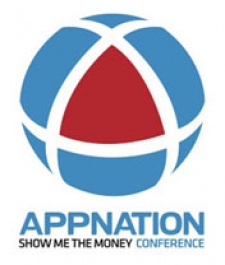On the second day of the AppNation conference, rumblings from the Apple-Tapjoy situation continue to be ongoing.
It surfaced again in the panel talk entitled Gamer Nation: The New Mass Market.
"What do you think about Apple banning Tapjoy's incentivisation model?" asked moderator Yuraki Kane from the Wall Street Journal.
"I think it's wonderful thing," said Eros Resmini, veep marketing and developer relations, OpenFeint.
"I don't think it rewarded the right thing. I think we should be rewarding great content, not enabling companies to game the system."
//Amendment: We've been asked to point out this answer referred to Apple and Google's apparent tweaks to their app store algorithms, not specifically the Tapjoy situation.
Clive Downie, veep, marketing at ngmoco, agreed.
"When you're dealing with billions of consumers, the winners will be the developers who create the best content. Gaming the audience is a short term solution."
Here I am
Downie continued, looking at the future of how consumers find apps; a problem Tapjoy's scheme was designed to solve.
"Discoverability of great content will be key. Things such as Plus+ and OpenFeint's network are the forerunners for new networks that will scale as millions of likeminded consumers talk about the content they love."
Resmini got philosophical too.
"Is it more interesting to make one network or to have many local or regional networks?" he queried.
"We believe there's are unique elements in different markets. That's the reason we did the acquisition with GREE, because there are Western, Japanese and Chinese markets which are different. OpenFeint is a very westernised company, which is why we partnered with The9 for China."
What's my motivation?
As for the question of what business models developers should be thinking about, both speakers were in broad agreement.
"Freemium isn't the only way," said Resmini.
"More traditional games for hardcore players are also hitting the top of charts. It's all about what the sweetspot is for each developer. It's not about what's the right way make money. It's about what's the right way to make money for you as a developer."
Downie was more abstract when it came to ngmoco's approach to freemium games; after all, it is a pure freemium publisher.
"When we think about monetising our games, consumer relationships are key," he explained.
"We need to sustain a relationship with a large number of players. We spend a lot of time working out what it is to define and sustain a consumer relationship.
"Great content that fulfills the needs of the consumers that's what going to be key as this market grows to billions of players. It's about emotionally engaging with the audience."
AppNation 2011: OpenFeint and ngmoco pleased about Apple's Tapjoy incentivisation ban
#appnation Gaming the App Store is bad























